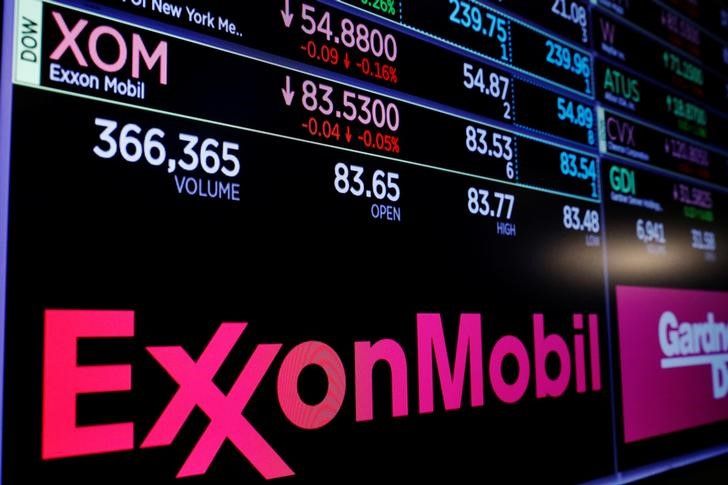HOUSTON, (Reuters) – New York’s attorney general sued Exxon Mobil Corp today, alleging that the world’s largest oil company for years misled investors about the risks of climate change regulations on its business.
The suit, filed in New York Supreme Court, New York County, seeks undisclosed damages, a court order for a review of the company’s representations, and that the company corrects “numerous misrepresentations” to investors.
It alleges Exxon assured investors it had properly evaluated the impact of climate regulations on its business using a “proxy cost” for the likely effects of future events on its business. However, these proxy figures frequently were not used in its internal planning or cost assumptions, the suit claims.
The company also failed to properly account for such costs in determining its volume of oil and gas reserves, or whether to write down the value of its assets, a metric important to investors.
 “The company claimed to be factoring the risk of increasing climate change regulation into its business decisions,” Attorney General Barbara Underwood said in a statement. “Yet as our investigation found, Exxon often did no such thing.”
“The company claimed to be factoring the risk of increasing climate change regulation into its business decisions,” Attorney General Barbara Underwood said in a statement. “Yet as our investigation found, Exxon often did no such thing.”
Exxon “looks forward to refuting these claims as soon as possible and getting this meritless civil lawsuit dismissed,” said spokesman Scott Silvestri in a statement.
He further described the suit as the “product of closed-door lobbying by special interests, political opportunism and the attorney general’s inability to admit that a three-year investigation has uncovered no wrongdoing.”
In the past, Exxon has called the state’s investigation politically motivated and designed to silence it and others in the debate on climate change regulations.
It unsuccessfully fought to halt the New York investigation and a similar probe by the state of Massachusetts that claims Exxon misled consumers with its statements on climate change.
Exxon and other oil companies including BP Plc, Chevron Corp and Royal Dutch Shell face lawsuits by cities and counties across the United States seeking funds to pay for seawalls and other infrastructure to guard against rising sea levels brought on by climate change.
“Exxon clearly has a big problem telling the truth about climate change,” said Richard Wiles, executive director of advocacy group Center for Climate Integrity. “The company needs to pay investors they misled and the cities and states now facing massive climate expenses.”





